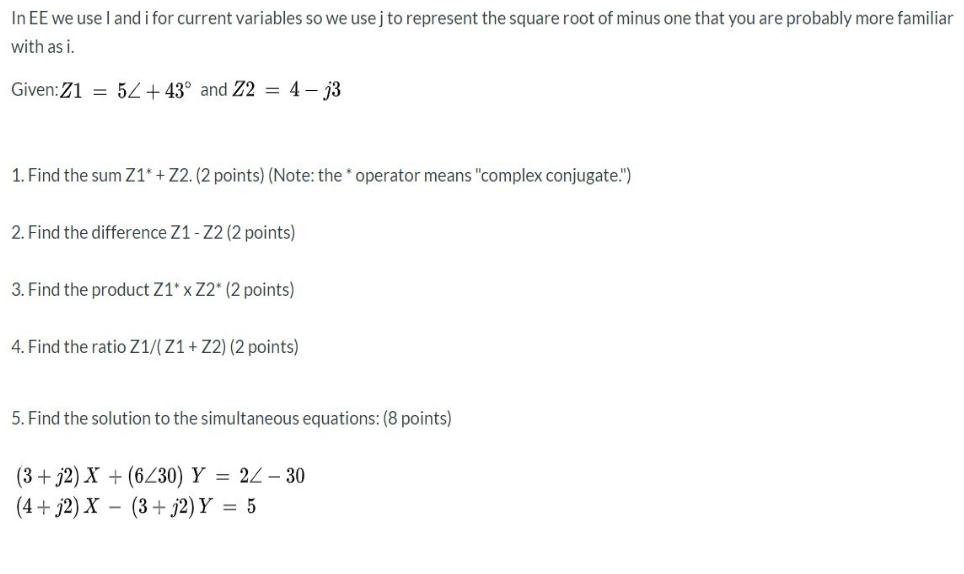Question
In EE we use I and i for current variables so we use j to represent the square root of minus one that you

In EE we use I and i for current variables so we use j to represent the square root of minus one that you are probably more familiar with as i. Given: Z1 52 + 43 and Z2 = 4-j3 1. Find the sum Z1* + Z2. (2 points) (Note: the operator means "complex conjugate.") 2. Find the difference Z1-Z2 (2 points) 3. Find the product Z1* x Z2* (2 points) 4. Find the ratio Z1/(Z1 + Z2) (2 points) 5. Find the solution to the simultaneous equations: (8 points) (3+j2) X + (6/30) Y = 22-30 (4+j2) X (3+j2) Y = 5
Step by Step Solution
3.43 Rating (153 Votes )
There are 3 Steps involved in it
Step: 1

Get Instant Access to Expert-Tailored Solutions
See step-by-step solutions with expert insights and AI powered tools for academic success
Step: 2

Step: 3

Ace Your Homework with AI
Get the answers you need in no time with our AI-driven, step-by-step assistance
Get StartedRecommended Textbook for
Income Tax Fundamentals 2013
Authors: Gerald E. Whittenburg, Martha Altus Buller, Steven L Gill
31st Edition
1111972516, 978-1285586618, 1285586611, 978-1285613109, 978-1111972516
Students also viewed these Electrical Engineering questions
Question
Answered: 1 week ago
Question
Answered: 1 week ago
Question
Answered: 1 week ago
Question
Answered: 1 week ago
Question
Answered: 1 week ago
Question
Answered: 1 week ago
Question
Answered: 1 week ago
Question
Answered: 1 week ago
Question
Answered: 1 week ago
Question
Answered: 1 week ago
Question
Answered: 1 week ago
Question
Answered: 1 week ago
Question
Answered: 1 week ago
Question
Answered: 1 week ago
Question
Answered: 1 week ago
Question
Answered: 1 week ago
Question
Answered: 1 week ago
View Answer in SolutionInn App



